Interview: Rory McFarlane
January 15, 2021 · 2 comments
By Andrew Osmond.

While the score for the Japanese release of Cyber City Oedo 808 (included on the subtitled version of the film) was composed by Kazuhiko “Kazz” Toyama, it was replaced completely on the English-dubbed version. Andrew Osmond talks to Rory McFarlane about how he composed the new score.
How did you come to be commissioned to write the new version of the score for Cyber City Oedo 808?
I was asked by Andrew Frain of Manga if I would be interested in doing it – I had worked for him on other non-Manga projects previously. He sent me the three films, I watched them, liked them and thought it would be fun.
Were you given a brief about what the score should be like – for example, were you told it should be “in the style of” something else?
The first thing I was asked to submit was a demo for the opening credits which would start all three films. As a stylistic reference, Andrew suggested the fast section of a piece of music from the 1970s called “Nantucket Sleighride” by a group called Mountain. I knew this piece well and really liked it and I thought it was a great reference.
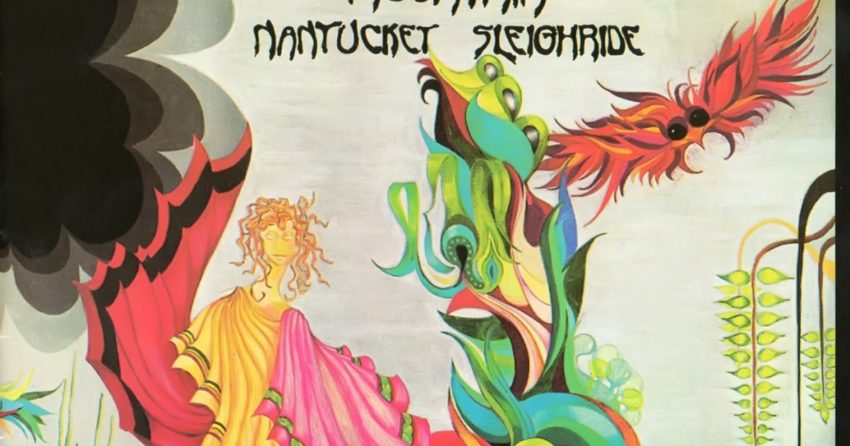
I worked out what I thought was so effective about that piece and then composed a new one incorporating some of those elements. If I remember correctly, Andrew really liked the first draft I gave him and didn’t want much in the way of changes, so I knew we were on the same page.
Regarding the incidental music within the films, I was shown the exact moments where music should come in and out, but I was left to come up with the style and content.
It was agreed that since each film centred on a different character, each soundtrack should be geared to that character. With the first film, File 1, and its central character of Goku, I thought thrash metal/fast metallic rock would be a perfect fit, continuing with the instrumentation of my opening credits music – heavy guitars, bass, drums and keyboards. I was by no means an expert on that genre of music, but I’ve always enjoyed anything if it’s good and done well and besides, who doesn’t love a great guitar riff!
With the second film, File 2, I thought a slower, heavier theme would suit Gogol, in the manner of Led Zeppelin, while still retaining the same instrumental line-up and direction as the first film.
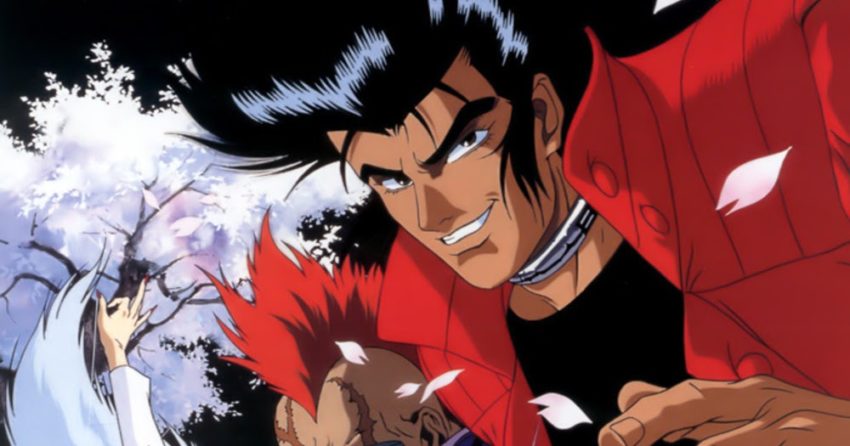
Another producer at Manga had been assigned to oversee the project once the business of writing the incidental music had begun. He would come to my studio and hear the completed music on each film, then give me any revisions he wanted. With the third film and its central character Benten, he was very keen to develop a different sound and wanted to head much more towards electronic-club-dance music. I remember at the time I was not convinced about this for a direction, so I tried to keep it from moving too far from the other films while still using some new sounds from the dance realm. I also thought it might be intriguing to mix the electronic sounds with the heavy guitars I had already been using.
Did you listen to the Japanese score, or would that have been a distraction?
I didn’t really listen to the original Japanese music as Manga wanted mine to be completely different. I think someone played me a short burst of it at one point, but I was not given a copy of that music – the pictures I worked with had only speech and sound effects.
How much did you aim to “match” your music to the specific action playing out on the screen?
I went for a very close match to the action on-screen. I let the pictures and dialogue completely dictate what I did. I composed the first two films on electric guitar, running the film and playing along while recording, just instinctively reacting to what I saw without thinking too much. Then I would listen back to see if it worked before adding other instruments. It seemed to work. With the third film, it was a bit more keyboard- and drum-driven so I often sat at the keyboard to start off, but the process was the same otherwise.
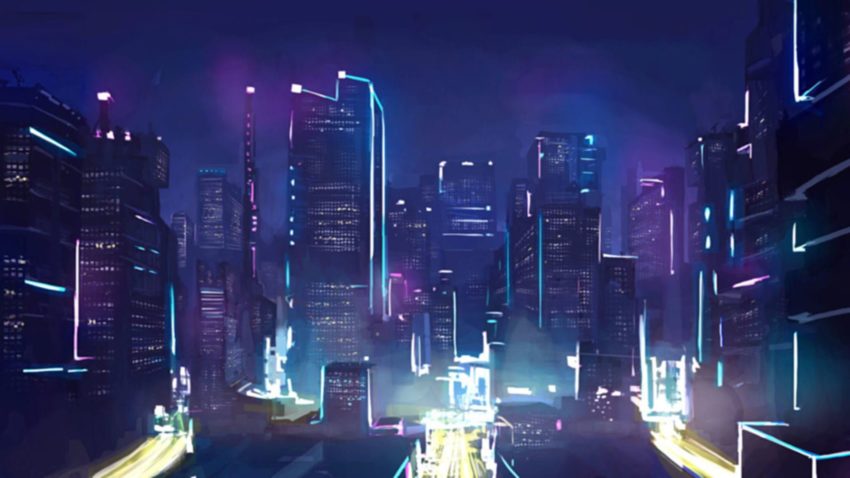
What were the main instruments and equipment you used to create the score, and how many other people (if any) did you bring in to create it?
I felt like I knew pretty quickly what I wanted it all to sound like – not slick like a bunch of session musicians, but raw, high energy and quite punky, so I decided to play it all myself. I am mainly a bass player, but I can play some guitar and keyboards and, due to being a rhythm section player, I understand how drum parts work. I aimed to make it sound like a live band just going for it, using just a few musical components.
Back then, it was a time when computers were much less powerful and people were gradually moving over to them for music production. I was still using a different system based around an Akai Linn MPC60 drum sequencer. This machine allowed for very good programmed drum parts and it ran live in sync and was not recorded. I was recording all-analogue instruments such as electric guitars and bass to a multitrack tape machine. Keyboard parts were also running live via midi from the Akai Linn. Back then, syncing up to picture with multitrack tape was a clunky business, but it worked. It’s much easier and quicker now; it all takes place inside computer software.
Had you created similar music for other projects previously, or was this score a departure into new musical territory?
I had previously been composing music to picture on TV commercials, etc. and prior to that, working on people’s song demos, so I was used to being expected to tackle all sorts of music. However, I had not really done a lot like this before.
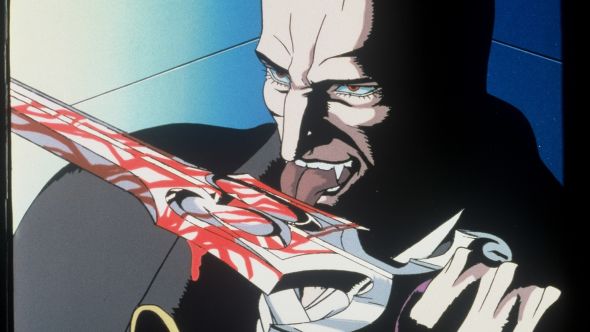
Do you remember about how long it took to create the score?
The deadlines were tight – I was given a month for each of the films including revisions, so the whole thing was done in three months. It was intense.
Did you find it an enjoyable project, and do you have a favourite part of the score?
I absolutely loved doing it. I don’t listen to my own music generally much afterwards and I cannot remember all of it offhand right now. I know I was very happy with it at the time – I would not have let it go otherwise. I think Andrew Frain would pick Gogol’s theme from early in File 2 as a personal favourite of his. Anyway, it was a very satisfying project for me all round and free of creative difficulties – the music almost seemed to compose itself.
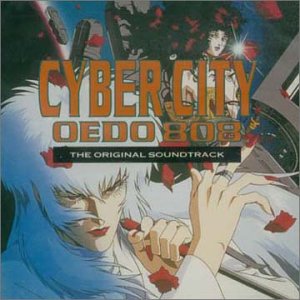
What kind of feedback have you received about the music since it was released?
Over the years, a few people have tracked me down to tell me how much the music meant to them, which was very kind of them and came as a complete surprise. This included a couple of people who went on to become musicians and music producers. A big thank-you to all of them.
Have you worked on any other projects related to Japanese animation?
Following this project, I was asked to submit ideas for a Buichi Terasawa film [likely to have been Space Adventure Cobra: The Psychogun]. He liked what I came up with, so we met and he said he was keen for me to do the film. Sadly, the project ran into financial problems early on, in connection with one of the Japanese producers, and so it was cancelled.
Finally, for the benefit of readers who know your Cyber City music but who don’t know your other work, can you talk about your subsequent career?
Afterwards, I continued to write music to picture on TV commercials and other things. Andrew Frain set up another animation company after Manga and, through him, I was involved in a big project for FIFA for the 2012 World Cup.
I also continued as a session bass player on electric and upright bass. I worked for eight years as bassist for Nigel Kennedy, a big classical and “crossover” violinist. I also played on some projects for Damon Albarn, including his show Monkey – Journey to the West.
From 2001, I freelanced as a bass player in London’s west end theatres on a lot of shows including The Lion King, Wicked and Matilda. For various reasons, such as the changes in TV and advertising, and due to being increasingly busy with bass playing, I generally moved away from composing. Looking back now, I can say working on Cyber City was definitely one of my personal highlights as a composer.
Cyber City Oedo 808 is released on UK Blu-ray by Anime Limited.
Rob Taylor
November 2, 2021 3:20 pm
Great interview, sounds like a lovely guy - and unbelievably talented. I've listened to a million different songs, albums, telly/film/videogame themes and I can honestly say his work on Cyber City is among the best. It'll still sound fresh and futuristic in a century's time. Bravo Rory!
Edward Noble
December 27, 2024 6:39 am
Super interview! This was such a nice insight into the work and man behind the music! I found this interview after digging up the music from Cyber City. It's so good! I remember discovering the episodes on Ch4 late one night as a kid and being blown away. Then years later I tried to hunt it down and came across the US version. OMG, it's not the same. Rory's music brings so much life to the show. I just wanted to come and express my appreciation for the music!!